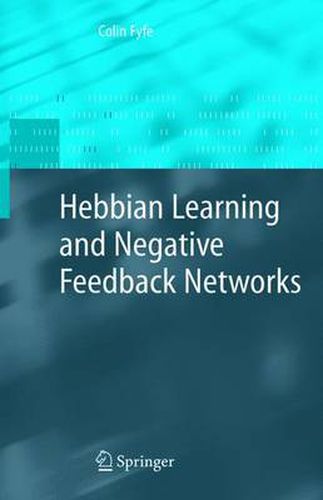Readings Newsletter
Become a Readings Member to make your shopping experience even easier.
Sign in or sign up for free!
You’re not far away from qualifying for FREE standard shipping within Australia
You’ve qualified for FREE standard shipping within Australia
The cart is loading…






The central idea of Hebbian Learning and Negative Feedback Networks is that artificial neural networks using negative feedback of activation can use simple Hebbian learning to self-organise so that they uncover interesting structures in data sets. Two variants are considered: the first uses a single stream of data to self-organise. By changing the learning rules for the network, it is shown how to perform Principal Component Analysis, Exploratory Projection Pursuit, Independent Component Analysis, Factor Analysis and a variety of topology preserving mappings for such data sets. The second variants use two input data streams on which they self-organise. In their basic form, these networks are shown to perform Canonical Correlation Analysis, the statistical technique which finds those filters onto which projections of the two data streams have greatest correlation. The book encompasses a wide range of real experiments and displays how the approaches it formulates can be applied to the analysis of real problems.
$9.00 standard shipping within Australia
FREE standard shipping within Australia for orders over $100.00
Express & International shipping calculated at checkout
The central idea of Hebbian Learning and Negative Feedback Networks is that artificial neural networks using negative feedback of activation can use simple Hebbian learning to self-organise so that they uncover interesting structures in data sets. Two variants are considered: the first uses a single stream of data to self-organise. By changing the learning rules for the network, it is shown how to perform Principal Component Analysis, Exploratory Projection Pursuit, Independent Component Analysis, Factor Analysis and a variety of topology preserving mappings for such data sets. The second variants use two input data streams on which they self-organise. In their basic form, these networks are shown to perform Canonical Correlation Analysis, the statistical technique which finds those filters onto which projections of the two data streams have greatest correlation. The book encompasses a wide range of real experiments and displays how the approaches it formulates can be applied to the analysis of real problems.